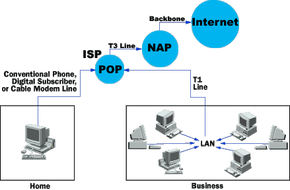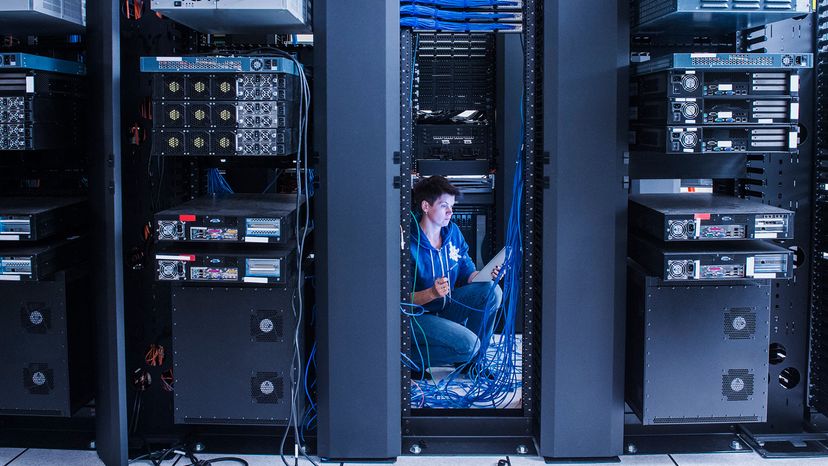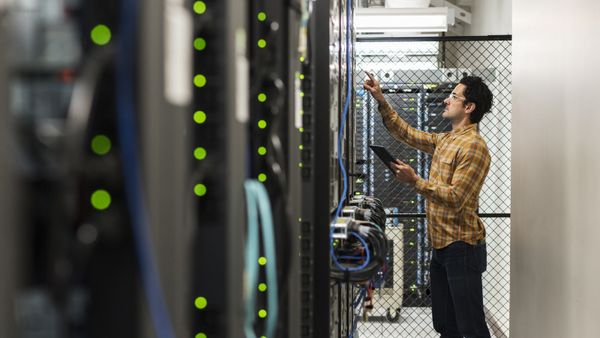Every machine on the internet has a unique identifying number, called an IP address. The IP stands for Internet Protocol, which is one of two protocols that computers use to communicate over the internet. The other is Transmission Control Protocol, and the two are often referred to as one in the phrase TCP/IP. A protocol is the predefined way that someone who wants to use a service connects with that service. The "someone" could be a person, but more often it is a computer program like a web browser.
A typical IP version 4 (IPv4) address looks like this: 216.27.61.137.
To make it easier for us humans to remember, IP addresses are normally expressed in decimal format as a dotted decimal number like the one above. But computers communicate in binary form. Look at the same IPv4 address in binary: 11011000.00011011.00111101.10001001.
Each sequence of numbers in an IPv4 address is called an octet, because each has eight positions when viewed in binary form. If you add all the positions together, you get 32, because IPv4 addresses are considered 32-bit numbers. Since each of the eight positions can have two different states (1 or 0), the total number of possible combinations per octet is 28 or 256. So, each octet can contain any value between zero and 255. Combine the four octets and you get 232 or a possible 4,294,967,296 unique values!
Out of the almost 4.3 billion possible combinations in IPv4 addresses, certain values are restricted from use as typical IP addresses. For example, the IP address 0.0.0.0 is reserved for machines on the local network and the address 255.255.255.255 is used for broadcasts.
Although 4.3 billion sounds like a lot of addresses, the internet has grown so fast that a newer 128-bit address system was needed to replace IPv4. The experts at the Internet Engineering Task Force (IETF) began working on a new system in late 1998. IP version 6 (IPv6), which officially launched on June 6, 2012, has room for 340 trillion3 addresses, so we should have plenty of room for all our devices. (For now.) Just for the record IPv5 was never formally adopted as a standard.
As you might expect, IPv6 addresses look a little different from IPv4, which was created in the 1970s. Each segment in an IPv6 address uses four numbers and is separated by a colon.
An example looks like this: ba5a:9a72:4aa5:522e:b893:78dd:a6c4:f033.
Because IPv6 uses hexadecimal notation, there are 16 individual digits that need to be represented. So besides the numbers zero through nine, the letters A-F have been drafted to stand in for the double-digit numbers.
Sticking with IPv4 for the moment, octets serve a purpose other than simply separating the numbers. They are used to create classes of IP addresses that can be assigned to a particular business, government or other entity based on size and need. The octets are split into two sections: network and host. The first octet is used to identify the network that a computer belongs to. Host (sometimes referred to as node) identifies the actual computer on the network. The last octet shows the host segment. There are five IP classes plus certain special addresses. You can learn more about IP classes at What Is an IP Address?





